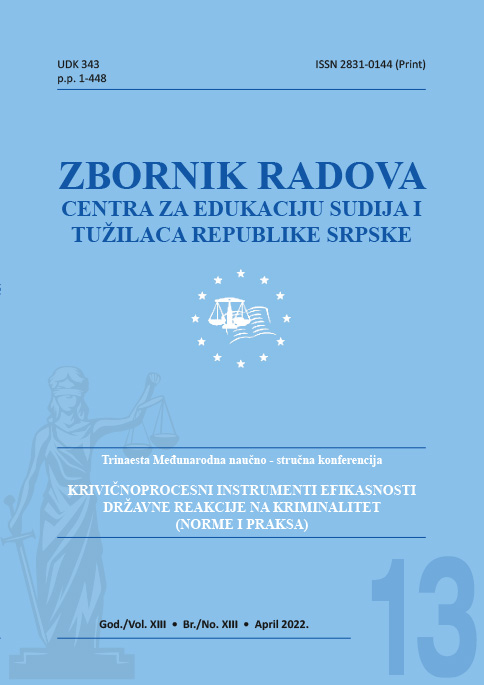RESOCIALIZATION OF JUVENILE CRIMINALS IN EDUCATIONAL AND CORRECTIONAL INSTITUTIONS
DOI:
https://doi.org/10.7251/CEST1322379MKeywords:
juvenile delinquent, resocialization, re - educational treatment, correctional facility, educational measuresAbstract
There are many causes that lead to juvenile delinquency, and sanctioning such deviant behavior is mostly reduced to alternative measures, police warning and making educational recommendations. If juveniles continue to commit criminal offenses, criminal sanctions in the form of educational measures, sentences of juvenile imprisonment and security measures shall be imposed. Unfortunately, many educational measures aimed at correcting the behavior of juveniles often fail to return the juvenile offender to the right path, but they opt for crime as a profession and look for role models in older and more experienced criminals, which greatly complicates the process of resocialization. Resocialization is a complex process whose success depends on the realization of institutional re-educational treatment. The aim of this paper is to point out how and in what way re-educational treatment is conducted with juvenile offenders and how much its effects are reflected in the success of the re-socialization of juvenile offenders who are in correctional facilities. In this paper, we will point out the numerous difficulties that hinder the implementation of institutional re-educational treatment, as well as the need for more efficient post-penal treatment in order for resocialization itself to be as successful as possible.
